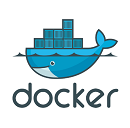AWS: CloudCraft – an existing infrastructure’s map generator0 (0)
21 August 2019
I’m using CloudCraft service for a while – really handy. A couple of days ago I got a full subscription with all its features (first two weeks are free, by the way) among which I’d like to try an ability to create a map of an existing AWS account with all its resources and their… Read More »
![]()




